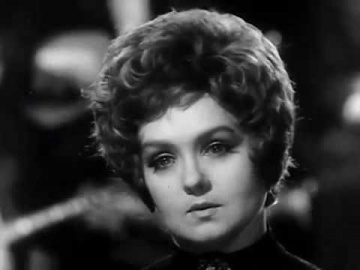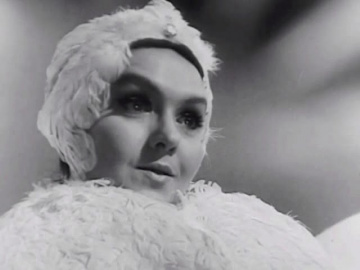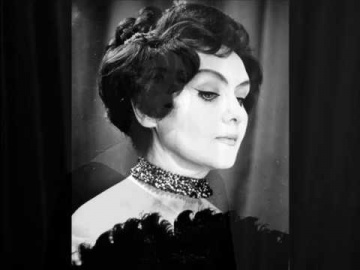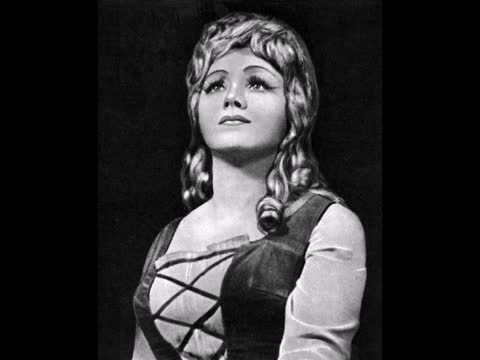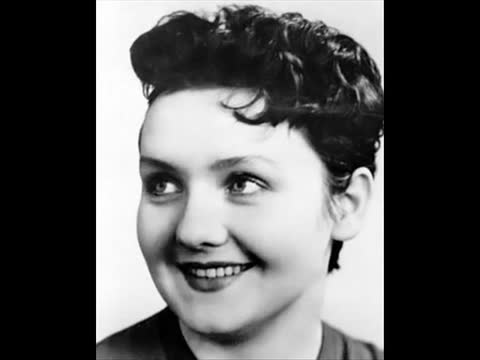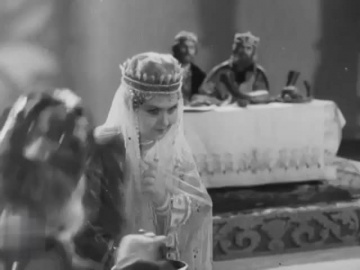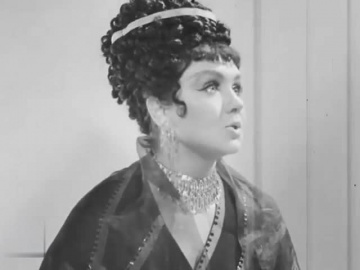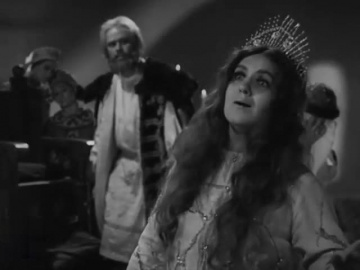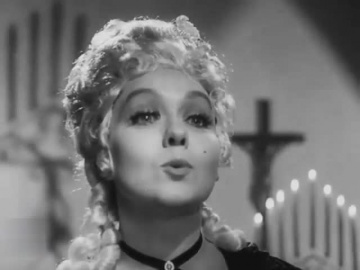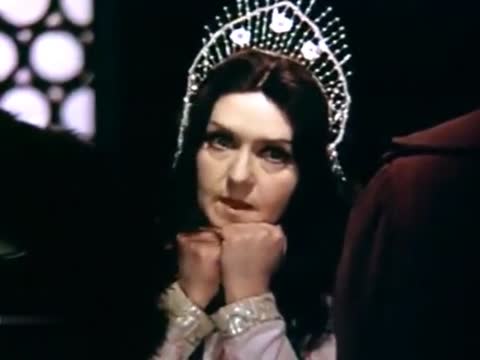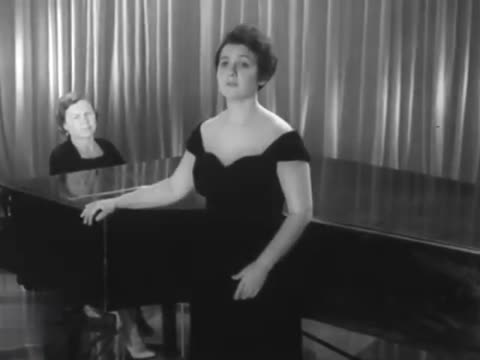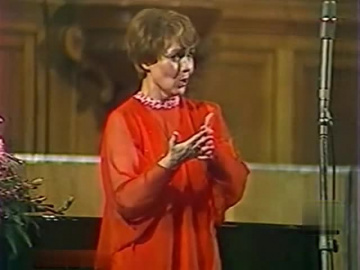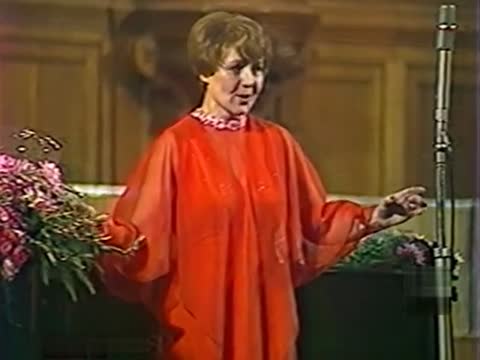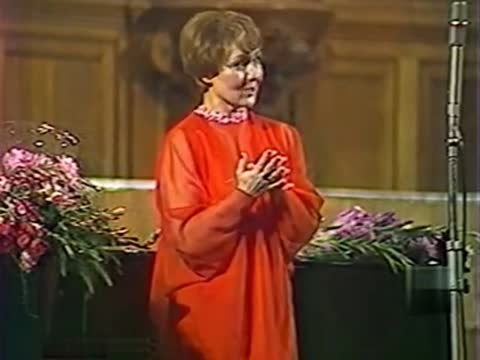Галина Ковалёва Galina Kovaleva плейлист
Галина Ковалёва Galina Kovaleva
Галина Александровна Ковалёва (1932—1995) — советская российская оперная певица (колоратурное сопрано), педагог. Народная артистка СССР (1974). Галина Ковалёва родилась 7 марта 1932 года в посёлке Горячий Ключ (ныне — в Краснодарском крае, Россия). В 1959 году окончила Саратовскую консерваторию имени Л. В. Собинова по классу пения О. Н. Стрижовой. Во время обучения получала Собиновскую стипендию. В 1957 году, будучи ещё студенткой четвёртого курса, участвовала в концертах VI Всемирного фестиваля молодежи и студентов в Москве. С 1958 года — солистка Саратовского театра оперы и балета. С 1960 года — солистка Ленинградского театра оперы и балета им. С. М. Кирова (ныне Мариинский театр). В 1961 году дебютировала в партии Розины в опере «Севильский цирюльник» Дж. Россини. В дальнейшем получила известность в таких партиях зарубежного репертуара, как Лючия («Лючия ди Ламмермур» Г. Доницетти), Виолетта («Травиата» Дж. Верди). Певице также близок русский репертуар: в операх Н. А. Римского-Корсакова — Марфа («Царская невеста»), Царевна-Лебедь («Сказка о царе Салтане»), Волхова («Садко»), в операх М. И. Глинки — Антонида («Иван Сусанин»), Людмила(«Руслан и Людмила»). Пела в дуэтах с такими выдающимися певцами своего времени, как Николай Гяуров, Георг Отс, Хендрик Крумм, Владимир Атлантов, Виргилиюс Норейка, Елена Образцова, Ирина Богачёва, и др. Выступала и как концертная певица. Гастролировала в Болгарии, Чехословакии, Франции, Италии, Канаде, Польше, ГДР, Японии, США, Швеции, Великобритании, Латинской Америке. С 1970 года — доцент Ленинградской консерватории (с 1981 года — профессор). Скончалась 7 января 1995 года в Санкт-Петербурге. Похоронена на Литераторских мостках Волковского кладбища.
Galina Kovaleva (Soprano). Born: March 7, 1932 — Goriachii Kliuch, Krasnodar Krai, Russia. Died: Early 1995 — St. Petersburg, Russia. The Russian soprano, Galina Aleksandrovna Kovaleva, sang for her audition for the Saratov Sobinov Conservatory, Alabiev's «Nightingale» without accompaniment. She was accepted immediately, even though she could not read music, and graduated in 1959. While she was still a fourth-year student, Galina Kovaleva was enrolled in the company of the Saratov Opera House and immediately given the role of Marfa in Nikolai Rimsky-Korsakov’s The Tsar’s Bride, which became a signature role for her and remained her favourite. In November 1960 she was invited to Leningrad to perform at the famous Kirov (Mariinsky) Theatre. Success came immediately. She performed leading parts in The Barber of Seville, Rigoletto, Ruslan and Ludmila, Aida, and Lucia di Lammermoor with, as the critics noted, «captivating ease and naturalness.» Kovaleva met her husband Veniamin Fabritsky when he was photographing the Kirov Theatre for a book on architecture. In 1961 Galina Kovaleva won the Sofia Competition; a year later she took the Grand Prix at a competition in Toulouse. In 1967 she performed successfully at the Montreal Competition. In 1964 she was awarded the title of Honoured Artist of the RSFSR, three years later that of People’s Artist, and in 1974 she became a People’s Artist of the USSR. In 1978 she received the State Glinka Prize. Galina Kovaleva toured both at home and abroad (Bulgaria, France, Italy, Canada, and Japan), and in 1971 began teaching at the Conservatory, attaining full professorship in 1980. In the middle of the 1980's Galina Kovaleva said goodbye to the theatre. After a farewell concert that included many arias she never had sung on the stage, she concentrated on teaching work. She became ill in 1994 and passed away in early 1995, she was buried at the Serafimovskoe Cemetery. «Galina Kovaleva possesses a coloratura soprano of such exceptional quality that it can be reckoned one of the voices of the century… The singer displays dazzling technique, unparalleled virtuosity, a brilliant coloratura timbre and a perfect manner of delivery,” the French newspaper La Dépêche wrote in 1963. Other recordings include 3 recitals discs for Melodiya with operatic selections from Aida, Norma, Lucia, Mignon, Manon, Verdi's Otello, Barber of Seville, Lakme, Rigoletto, and La Traviata, and soprano arias from Russian operas.
